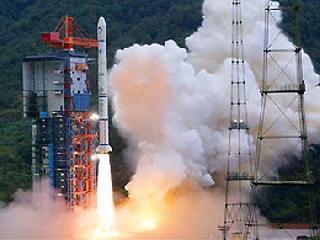
A file photo of China's Long March rocket launch.
BEIJING (PTI): Buoyed by the successful launch of its maiden space lab Thursday, China said it is developing new generation of rockets that will have a larger thrust to cater to the demand of building a space station.
"The building of a space station requires carrier rockets with greater thrust as each capsule of the station will weigh about 20 tonnes," said Jing Muchun, chief engineer for the carrier rocket system of China's manned space programme.
"We have been preparing for the launch of the space station slated for 2020," Jing was quoted as saying by state-run Xinhua news agency.
His comments came as the Tiangong-1, China's first space lab module, was successfully launched into space by the Long March-2FT1 carrier rocket paving the way for a future space station.
Jing's deputy, Song Zhengyu, said the new generation of carrier rockets, represented by the digital and poison- and pollution-free Long March-5 and Long March-7, are expected to make their first lift-offs around 2014.
Song said the technologies applied to the new generation of carrier rockets will mature by 2021 and the existing Long March-2, -3 and -4 series will be replaced sequentially.
China started developing modern carrier rockets in 1956, and the Long March rocket series has become the mainstream carriers for launching China's satellites.
The Long March rockets currently fall into four categories, namely Long March-1, -2, -3 and -4.
 Previous Article
Previous Article Next Article
Next Article













The Indian Air Force, in its flight trials evaluation report submitted before the Defence Ministry l..
view articleAn insight into the Medium Multi-Role Combat Aircraft competition...
view articleSky enthusiasts can now spot the International Space Station (ISS) commanded by Indian-American astr..
view article